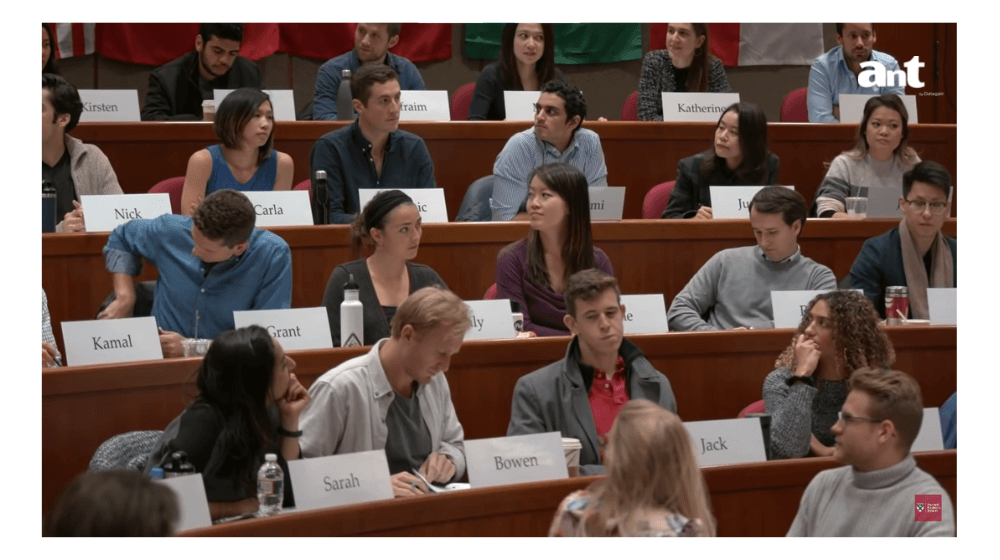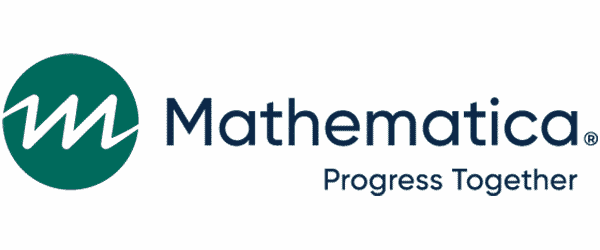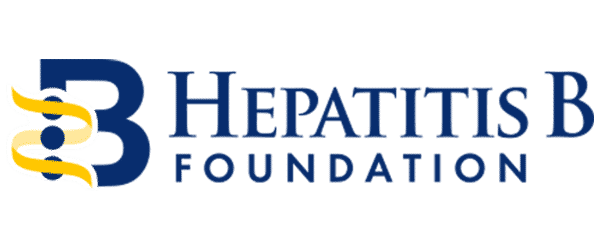
Home » Transcript Library » Education » Take a Seat in the Harvard MBA Case Classroom Transcript
Take a Seat in the Harvard MBA Case Classroom Transcript
Speaker 1 00:00:03
Today, we put ourselves in the shoes of Cynthia Carroll. Imagine, you’ve become CEO of one of the world’s largest mining companies, Anglo American. $25 billion in sales, 162,000 employees, 2/3rds of them in South Africa, and four months into your job you hear the news, one of the miners in Rustenburg has lost his life, yet another fatality. You have to decide—are you going to shut down the mine or continue business as usual. David, if you can open for us today. You’re Cynthia Carroll. The news comes to you. Do you shut down the mine in Rustenburg, yes or no? What are you going to do?
Speaker 2 00:01:00
So, I think she needs to initiate very detailed investigations into what happened in these circumstances, and then what has happened throughout the past.
Speaker 1 00:01:12
Are you going to shut down or not shut down?
Speaker 2 00:01:14
So, I’m going to do a detailed investigation, [Laugh] I mean, when I do have a plan.
Speaker 1 00:01:21
What are you learning? What are you learning in this investigation?
Speaker 2 00:01:24
Practices that are not being followed correctly, or out of line, or could be safer, where there’s like issues:
Speaker 1 00:01:30
People are dying. It’s not safe. [Laugh] What evidence are you looking for?
Speaker 3 00:01:36
When you get the opportunity to participate, you need to be able to compact the information that you’re going to present in a very concise and clear manner. Through participation in class every day, this is something that I am trying to sharpen.
Speaker 1 00:01:50
Who wants to get in on this?
Speaker 4 00:01:52
It’s dynamic, it’s fast-paced, there’s a ton of energy, and everyone’s really excited to jump in and contribute.
Speaker 5 00:01:57
I learn a lot from my peers, as much as I learn from the faculty, if not more. The professor kind of facilitates, it’s like an orchestra, they kind of direct the music, but they’re not necessarily playing it.
Speaker 1 00:02:09
Izosa?
Speaker 6 00:02:09
I think we need to shut it down. Miner deaths are accepted as just a part of the process of mining. Shutting down the operation would signal a very strong mentality shift that deaths aren’t going to be tolerated.
Speaker 1 00:02:23
That’s called a ‘bold stroke,’ by the way, what Grant is talking about, what Izosa is talking about, what Robert is talking about, is a ‘bold stroke,’ which means from this day forward, something has shifted. But those of you who disagree say what? Those of you who disagree say what, Will?
Speaker 7 00:02:43
I think we’d do much more, if we improve the culture around safety in the entire organization.
Speaker 7 00:02:48
There’s some truth that we’re trying to work toward. The debates become more and more fun, because that’s when you get to uncover views that you hadn’t thought of, and when you get to push your own thinking and hopefully make your own thinking much, much better.
Speaker 8 00:03:01
If you allow your perspective to be constructively challenged by other people, then it is just fascinating how your position and your perspective can shift.
Speaker 1 00:03:12
Those of you who want to shut down, how do you respond to this? Leylah.
Speaker 5 00:03:17
We’d shut down the plant because we had safety issues, and we made a stand, and we started making a safety culture, like we had a safety.
Speaker 5 00:03:24
The fact that we can have difficult, uncomfortable conversations—we can talk about race, we can talk about politics—and still be friends at the end of the day, and to have people who are not from a specific group but still have sympathy and empathy is pretty unique.
Speaker 9 00:03:42
Beyond cultural and beyond structural, we are also talking about just the people of the organization. The overseers are generally white, and the workers are generally Black. The language with which they communicate is called Fanagalo, and it’s largely a command-and-control language.
Speaker 1 00:03:54
So, you’re saying some structural, you’re saying some linguistic communication barriers, you’re saying some organization cultural issues around the entire organization.
Speaker 10 00:04:06
I think case method also gives you humility. Your perspective is not enough to figure out the answer to a question and actually gives you the ability to ask other people what their perspective is.
Speaker 11 00:04:18
So, it’s 27 countries represented in our section of 94 people, and because of the way that the case method is structured we can sort of get underneath what are those differences really tied to, you know, are there cultural things about where you come from that makes the business world operates slightly differently and are there things that we can learn from those differences.
Speaker 12 00:04:34
I think consumers are critical here. So, not only do they care about having high-quality inputs to their supply chains on time, but they will also care about safety
Speaker 12 00:04:44
In the first month or a couple weeks of class, I was hesitant to participate. But over time, I’ve gotten rid of all of my barriers and don’t really have any qualms about participating. But a lot of that is because of the support of my classmates, and not only do I see it changing in myself, but I see my classmates making better points over time, which then also, again, pushes me to be better.
Speaker 1 00:05:08
Stakeholder analysis is so, so important when we think about change. So important to do. We think about—who do we need to worry about, and what do they care about, what are their interests? And so, you start there, but that’s not enough. You have to then say, where do I need to invest the most time? Who is in this cell? The board.
Speaker 13 00:05:33
I’m really worried about the managers.
Speaker 14 00:05:35
I think the government is also a key in here because
Speaker 12 00:05:37
Being in the case setting, you realize how valuable everyone else around you is, and how valuable their opinions are and the importance of being a really good active listener.
Speaker 1 00:05:49
So, before we shift from this and think about some action planning, I just want to– show of hand—because it’s not clear to me, in this room—how many of you are shutting down? Really? And how many of you are not shutting down? So, most of you are not shutting down! [Laugh] Wow! So, are we going to resolve this now or are there points that we need to make?
Speaker 11 00:06:20
I don’t know if I think this is a performance gap. I don’t know if this is about best practices. To me, this is about culture. If all these miners were like White and not Black, I think that death rates would look very, very differently, because I think people would consider the value of the lives of the people in the mine very differently. The question we have to ask is—is this company extracting more value from the community than it’s providing?
Speaker 15 00:06:44
It’s scary to be vulnerable in a working world, so we’re oftentimes taught to put up a shield. But here you’re given an environment that supports you to take those risks and actually celebrates failures or celebrates diversity of thought when you don’t agree with someone.
Speaker 11 00:06:59
Jumping into the arena, using your brain to come to the best hypothesis and conclusion that you can—given the data that you have—is a task that leaders have to do every day, and how do you use limited information to make a decision and do that in a way that forces you to flex that muscle of dealing with ambiguity.
Speaker 1 00:07:17
They don’t get it, Jake.
Speaker 16 00:07:19
Yeah, and dragging it back up from the front line to the CEO position, one of the things that I was thinking about is not just all of these different elements that we should be considering in terms of safety, but also the leadership capability of Cynthia, yourself. You reliably took positions at your previous company, they were incredibly unpopular and encountered all sorts of resistance, and I think this is a case where you’ve shown that you can do it, and so, I would shut down the company.
Speaker 1 00:07:43
The situation is different, don’t you think? Is she suited for this job? Can she do this?
Speaker 16 00:07:49
I think that’s an incredibly challenging question.
Speaker 1 00:07:54
That’s what we do, Jake. This is what we do. This is what we do.
Speaker 1 00:08:04
We push students to take a position, or to take a stand because it forces students to think deeply, to think about risks, to think about the weaknesses in their ideas, and to also be open to influence. I want them to set high standards for themselves. I want them to be challenged. I want them to challenge others.
Speaker 17 00:08:30
So, what initially brought me here was that I wanted to compliment the skills that I developed in architecture and consulting with business skills. But once I got here, those priorities completely changed. What inspires me now is really having super engaged discussions with my peers. I don’t think that I’ve ever been that intellectually stimulated on a day-to-day basis as I am here, and I think for me that’s inspiring, and it just wakes me up every day with excitement.
Speaker 10 00:09:03
I think I recognized that I wasn’t pushing myself to think differently or to lead differently. I wasn’t going to do anything extraordinary, and I thought maybe if I came here, I would be pushed in a way that would lead me to develop into someone who could change something. At HBS, there’s just no one here who wants to come out the same way they came in, and that’s really exciting.
Speaker 1 00:09:29
30 years ago, Cynthia Carroll—30 years ago—was actually in your seats, in these exact same seats, and because of her, thousands and thousands of miners in the world are paid better, are much safer, and are leading better lives with much more dignity. One day, not only that could be you, I know that one day it will be you.
Copyright Disclaimer
Under Title 17 U.S.C. Section 107, allowance is made for “fair use” for purposes such as criticism, comment, news reporting, teaching, scholarship, and research. Fair use is permitted by copyright statute that might otherwise be infringing.






